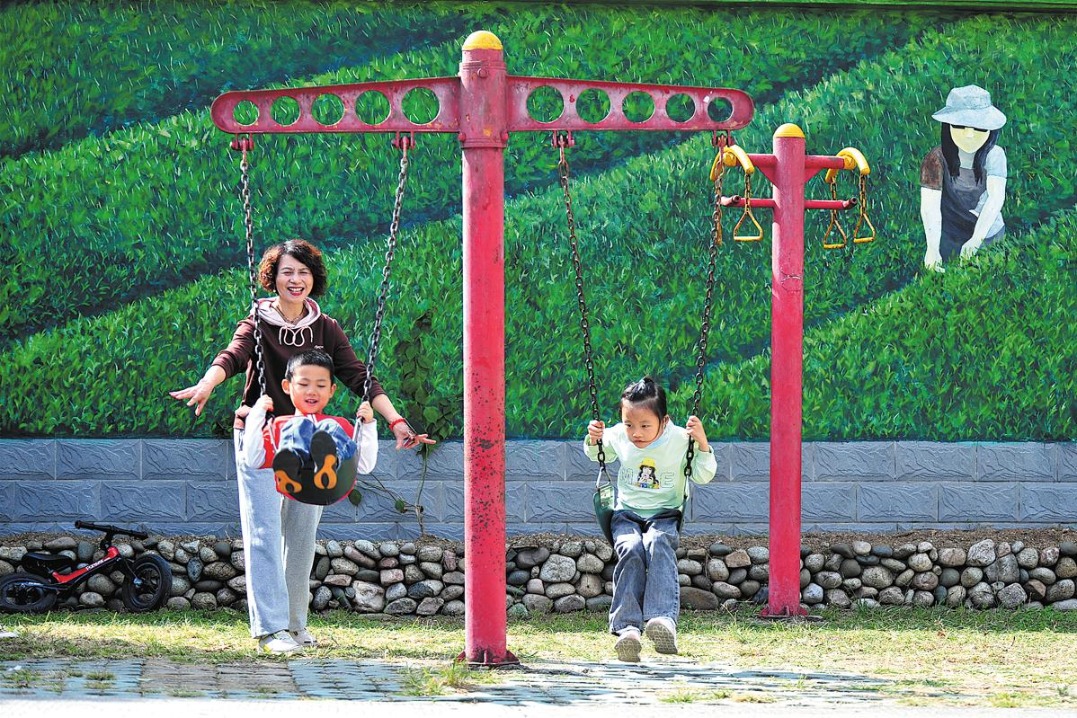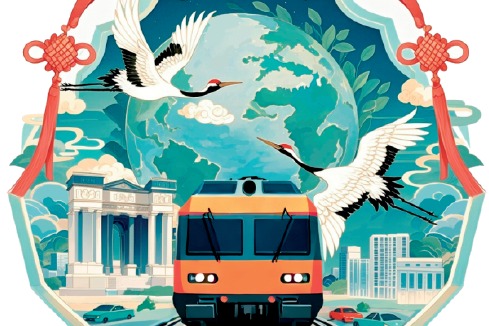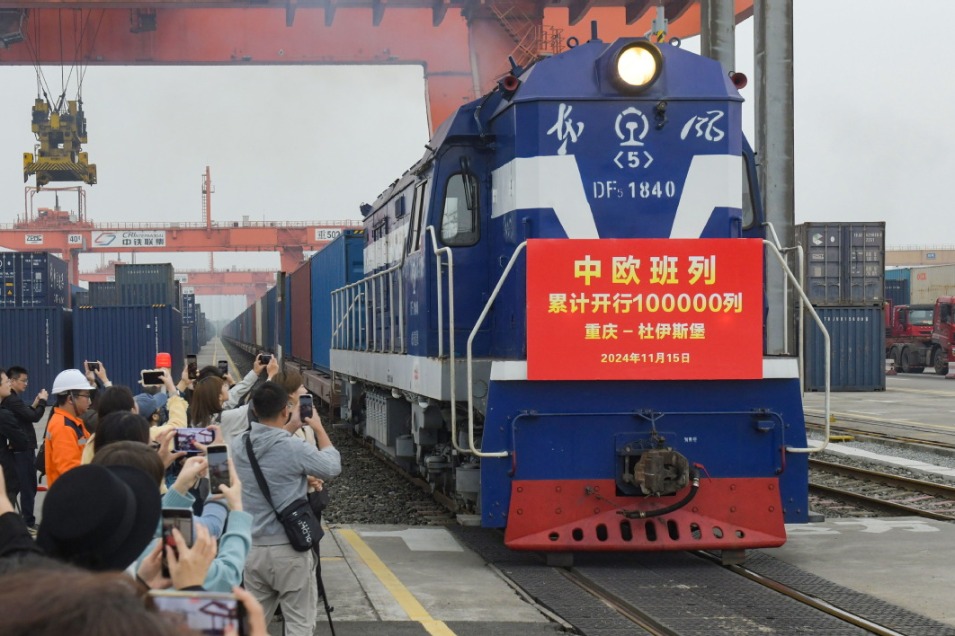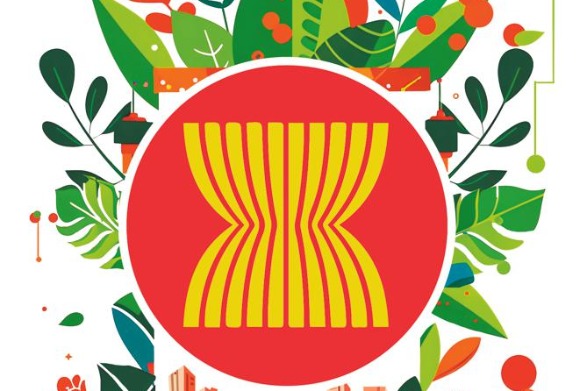Global symbiosis


Just governance, harmony and high-quality development are the cornerstones of the community with a shared future that China envisions
In 2017, President Xi Jinping delivered a keynote speech at the United Nations Office in Geneva, Switzerland, launching the goal of building a community with a shared future for mankind, and asked the following questions: What has happened to the world and how should we respond? Where did we come from? Where are we now? And where are we going?
Then in May of the same year, he pointed to three deficits: the peace deficit, development deficit and governance deficit.
In a sense, President Xi pointed to the limits of the Western modernization paths and the need for a new path of high-quality and people-centered world development and for a corresponding transformation of international governance and governance capacity: a development and governance path that moves humankind forward while addressing the problems associated with the modernization and development paths that have prevailed hitherto.
Associated with the Chinese concept of common prosperity at a global scale, the community President Xi has proposed involves: development centered on quality and the rapid diffusion of innovations of successive industrial revolutions; joint contributions and co-responsibility for shared benefits and equitable evolutions of the primary, secondary and tertiary distributions of income; ecological civilization and greater harmony between humanity and nature addressing global environmental challenges such as climate change; the enrichment of people's spiritual and cultural lives; effective, efficient and responsive systems of governance; and the establishing of a peaceful world and a shared world community.
Development occurs when there is a wide and rapid diffusion of innovative technologies and products that improve productivity, circularity and sustainability.
The world is on the cusp of a fourth industrial revolution, where economic growth depends on sustained real productive investment and the unimpeded diffusion of clusters of technologies and products and of knowledge and skills.
To achieve this, we need approaches to intellectual property rights, the productive and sustainable deployment of financial resources, and steps to address sustainability. These efforts should unfold in an orderly manner without sacrificing essential economic development goals — especially for less developed countries.
High-quality development also entails the creation of a peaceful world and a global community with a shared future. In this context there is clearly a struggle between Western views about international relations and those of China and much of the Global South, and between collectivist and individualist moral orders.
In February 2021, the newly appointed US Secretary of State Antony Blinken gave several speeches and interviews in which he repeated the line: "The world doesn't organize itself. When we're not engaged, when we don't lead, then one of two things happens: either some other country tries to take our place, but probably not in a way that advances our interests and values, or no one does, and then you get chaos."
High-quality international development presupposes the sovereignty and equality of all nations, noninterference in their internal affairs and the right to choose their own development paths along with dialogue and cooperation instead of the domination and exploitation by powerful economically advanced countries of less developed parts of the world.
In the past, it was not the case that chaos has prevailed in the absence of hegemonic powers. The East and Southeast Asian interstate system was largely at peace for 300 years up to 1894 and China was largely at peace for 500 years. In that era, a polycentric East Asian gongsheng (symbiosis) system characterized by a set of principles, norms and codes of conduct relating to interstate relations in which large and small countries found a proper place over the course of millennia fostered voluntary and tribute trade, and peaceful coexistence.
This experience is connected with a core Chinese concept of harmony. The concept of harmony is embodied in a number of Chinese concepts applicable to high-quality international relations, high-quality development and high-quality governance. These concepts include tianxia (all under heaven), guanxi (relationality) and gongsheng (symbiosis). Guanxi emphasizes relations of reciprocity and Confucius' adage. "If you want to establish yourself, help others to establish themselves; if you want to be successful, help others to be successful." Symbiosis emphasizes the "existence of the self in relation to others rather than existence in isolation".
These core concepts differ radically from Western accounts. Individualism simply cannot generate sufficient social solidarity, a sufficient sense of shared values or a sufficient awareness of community which are the absolute prerequisites for the integration and cohesion of societies, nation-states, and collective solutions to global issues. Instead, relatively unfettered individualism releases centrifugal social forces and can cause social disintegration.
In a speech at the third Belt and Road Forum for International Cooperation in 2023, President Xi indicated that China can only do well when the world is doing well; when China does well, the world will get even better. President Xi was drawing on core Chinese concepts of harmony and symbiosis widely shared in Asia and in the broader Global South. In indicating how cooperation can transform chasms that separate people and places into channels of communication and mutual understanding and benefit, he was seeking to point at ways of overcoming the divisions that torment our world. And, in emphasizing that the achievements of the historical Silk Roads were a result not of conflict and ideological contestation, but of peaceful interactions and exchanges, he reinforced the idea that helping others is also helping oneself. This speech as with many others was infused with values that express a commitment to a different world and different models of governance characterized by peace, mutual respect, cooperation and more equal and equitable development.
This path requires an effective information strategy as well as international exchanges that manage to communicate this vision and encourage its widespread adoption.
The author is emeritus professor at the University of Sussex. The author contributed this article to China Watch, a think tank powered by China Daily.
The views do not necessarily reflect those of China Daily.
Contact the editor at [email protected].

































